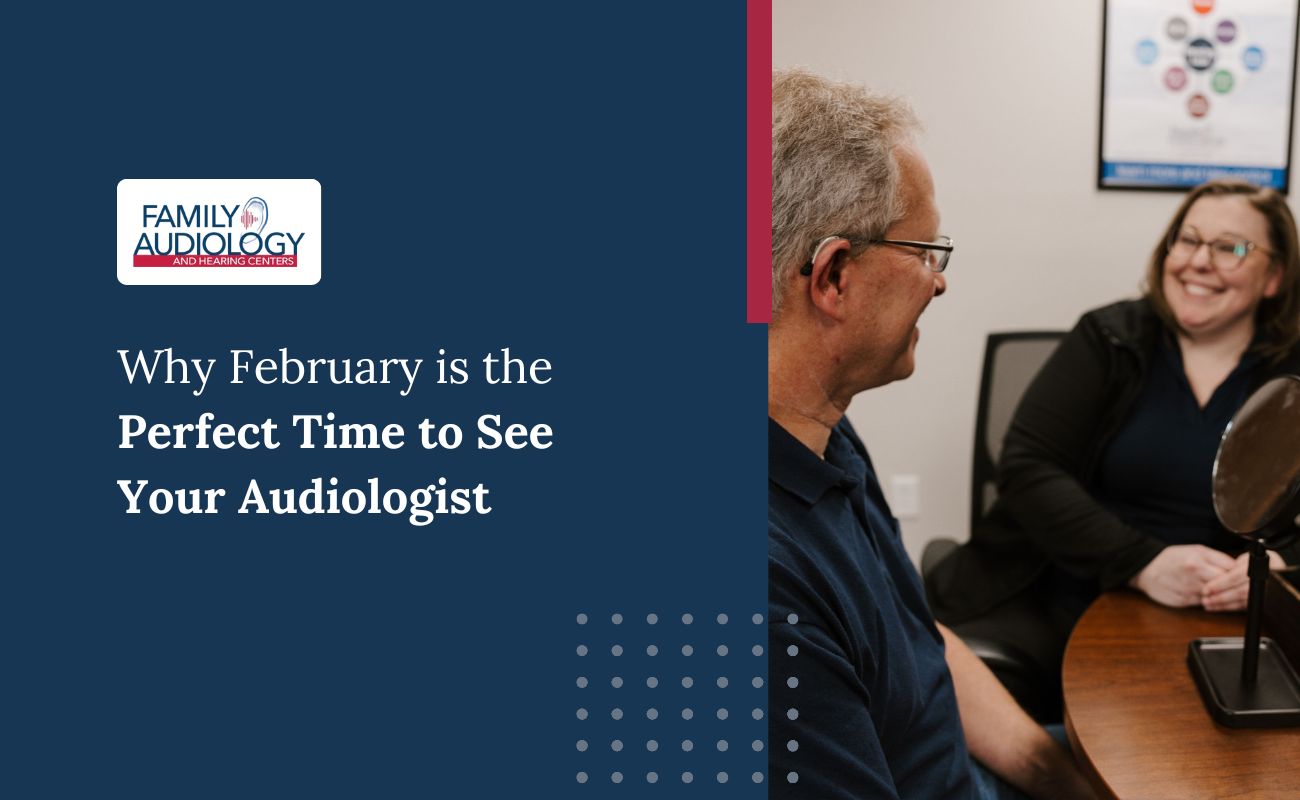The Importance of Regular Hearing Check-ups: What You Need to Know



Regular hearing check-ups are essential to maintaining our auditory health. These assessments allow us to detect any hearing loss or issues at an early stage, making them easier to manage. As we go about our daily lives, exposed to various levels of noise, it is vital to monitor our hearing to prevent potential long-term damage. Maintaining healthy hearing is not just about preserving our ability to hear sounds; it is about quality of life. Being able to communicate effectively, appreciate music, and fully participate in social situations hinges on our auditory wellness. Check-ups by audiologists, qualified professionals who help us identify and address hearing health concerns, ensure that our hearing remains one of our most valued senses. Our hearing health is also an indicator of our overall well-being, with issues sometimes pointing to other medical conditions. Regular check-ups can uncover symptoms like ear infections or excessive earwax build-up, both of which are treatable. These appointments with audiologists not only safeguard our hearing but can also contribute to a broader understanding of our health.
Understanding Hearing Health
In this section, we'll explore the fundamentals of hearing as a sense, and outline the common factors that can lead to hearing loss.
What is Hearing?
Hearing is our ability to detect and interpret sound waves through a complex process involving the ear's structures. Sound waves enter the outer ear, travel through the ear canal to the eardrum, causing vibrations. These vibrations are amplified by the three tiny bones in the middle ear and transmitted to the fluid-filled cochlea in the inner ear. The fluid movement stimulates hair cells that convert the vibrations into electrical signals, which the auditory nerve sends to the brain to be recognized as sound.
Common Causes of Hearing Loss
Hearing loss can occur due to various reasons, and can be classified into three main types:
- Conductive hearing loss: Caused by problems with the ear canal, eardrum, or middle ear structure. Common causes include:
- Ear infections
- Fluid in the ear
- Allergies
- Benign tumors
- Impacted earwax
- Eustachian tube dysfunction
- Sensorineural hearing loss: Results from damage to the hair cells in the cochlea or the auditory nerve. Causes include:
- Aging (presbycusis)
- Exposure to loud noise
- Head trauma
- Viruses or disease
- Ototoxic medications
- Genetic factors
Mixed hearing loss is a combination of conductive and sensorineural hearing loss and can be a result of both the causes mentioned above.
Benefits of Regular Hearing Examinations
We understand the significance of hearing health in our daily lives, from the ability to communicate to the enjoyment of sounds around us. Regular hearing examinations offer substantial advantages, making them an essential part of our healthcare routine.
Early Detection of Problems
- Identification of Hearing Loss: We can detect even mild forms of hearing loss early, which might go unnoticed in daily activities.
- Underlying Health Issues: Conditions like ear infections or earwax buildup are often identified through these check-ups, preventing complications.
Maintenance of Hearing Quality
- Preservation of Clarity: We ensure the maintenance of sound quality, critical for individuals using hearing aids or those exposed to noise.
- Adaptation to Changes: As hearing can change over time, regular assessments allow us to make necessary adjustments to hearing devices, ensuring optimal performance.
Components of a Comprehensive Hearing Check-up
A comprehensive hearing check-up encompasses several key evaluations to assess the full scope of hearing health. We aim to ensure accuracy and thoroughness throughout the process.
Physical Examination
The first component of a comprehensive hearing check-up is the Physical Examination. We visually inspect the ear canal and eardrum using an otoscope to check for any physical abnormalities like earwax buildup, infection, or structural issues. This initial step helps us determine if there are any visible factors affecting your hearing.
Audiometric Testing
Following the physical examination is Audiometric Testing, a crucial part of the check-up. This includes:
- Pure-Tone Testing: We assess the softest sounds you can hear at different frequencies to create your unique audiogram.
- Bone Conduction Testing: This test helps us discern between sensorineural and conductive hearing loss by bypassing the outer and middle ear.
- Tympanometry: By varying air pressure in the ear canal, we can evaluate the condition of the middle ear and the mobility of the eardrum and conduction bones.
Speech Comprehension
The last subsection is Speech Comprehension. We measure your ability to understand speech in both quiet and noisy environments. This test provides insight into:
- Speech Reception Threshold (SRT): The softest speech you can understand 50% of the time.
- Word Recognition Score (WRS): Your ability to correctly repeat back spoken words at a comfortable loudness level.
Through these tests, we can determine your speech comprehension capabilities and identify any potential issues that may not be evident in pure tone audiometry alone.
When to Seek a Hearing Evaluation
Regular hearing evaluations are a proactive approach to maintaining our auditory health. They enable us to detect changes in our hearing ability and to take necessary measures for treatment and management. Here, we outline the various circumstances under which we should consider scheduling a hearing assessment.
Age-Related Benchmarks
- 50 Years and Above: We should begin baseline hearing evaluations at age 50, as the risk of age-related hearing loss, also known as presbycusis, increases with age.
- Every 3 Years: Following the initial assessment, we recommend that adults over 50 receive evaluations every three years.
Signs of Hearing Loss
Hearing loss can occur at any age and may present itself in several ways. It is important to be vigilant for signs that could indicate a degradation in our hearing. Common indicators include:
- Difficulty understanding speech, especially in noisy environments.
- Asking others to repeat themselves frequently.
- Experiencing tinnitus, a ringing or buzzing noise in the ears in the absence of external sound.
- The need to increase the volume on electronic devices is higher than usual.
- Noticing that conversations seem muffled or unclear.
In the presence of any of these signs, we should schedule a hearing evaluation promptly to determine the cause and consider appropriate solutions.
Advancements in Audiology
We've witnessed significant progress in the field of audiology, especially in terms of diagnostic tools and hearing aid technology. These advancements ensure more accurate hearing assessments and personalized hearing solutions for individuals with hearing impairments.
Latest Diagnostic Tools
In recent years, audiologists have begun utilizing more refined diagnostic tools that yield precise hearing assessments.
- Otoacoustic Emissions (OAE) Testing: Records sounds that the inner ear produces in response to clicks or tones, indicating hair cell function.
- Auditory Brainstem Response (ABR) Testing: Measures how the hearing nerve responds to sounds and can diagnose hearing loss, especially in newborns and children.
- Real-Ear Measurement: Analyzes how well hearing aids amplify sounds in a patient's ear, allowing for exact customization.
Innovations in Hearing Aids
As for hearing aids, technological innovations have drastically improved their effectiveness and user comfort.
- Digital Signal Processing (DSP): Enables hearing aids to amplify helpful sounds while suppressing background noise, offering users a clearer listening experience.
- Connectivity Improvements: Many hearing aids now seamlessly connect with smartphones and other devices, making it easier for users to control and adjust settings.
- Rechargeable Batteries: The shift to built-in rechargeable batteries has not only made hearing aids more environmentally friendly but also more convenient for daily use.
Schedule a Hearing Test with Us at Family Audiology & Hearing Centers
Taking the step to evaluate your auditory health with a hearing test is crucial for maintaining not only your hearing but also your overall quality of life. At Family Audiology & Hearing Centers, we are committed to providing comprehensive hearing assessments designed to detect any hearing concerns early on.
What to Expect:
- Initial Consultation: Our experienced audiologists will have a detailed conversation to understand your hearing history and concerns.
- Hearing Assessment: We perform a series of tests to determine your hearing thresholds and identify specific areas that may need attention.
- Personalized Solutions: After assessing your hearing, we'll discuss the results and, if necessary, explore suitable hearing aids or treatment options.
Getting Started:
- Schedule Online: Visit our dedicated hearing specialists to book your appointment quickly and conveniently.
- Call Us: Reach out to our friendly staff, who can assist you in arranging a visit at a time that suits your schedule.
Before the Appointment:
- We recommend noting down instances of hearing difficulty or situations where you’ve noticed changes in your hearing. This will help us tailor the test to your needs.
At Family Audiology & Hearing Centers, we place emphasis on early detection and treatment of hearing issues, which can significantly improve your engagement in social settings and overall well-being. By addressing any hearing problems early, you contribute to a healthier, more vibrant lifestyle.
Discover the Latest Articles
Stay informed with our informative articles.

Why February is the Perfect Time to See Your Audiologist
.jpg)
What Your Audiologist Checks During a Comprehensive Hearing Evaluation

How AI Technology Is Transforming Hearing Aid Performance
Contact your local Hearing Aid Specialists
At Family Audiology and Hearing Centers, we strive to be there for all your family’s hearing needs. Because of this, we have 17 convenient locations in Ohio and Wisconsin for you to visit. See which location is best for you and schedule an appointment today.

